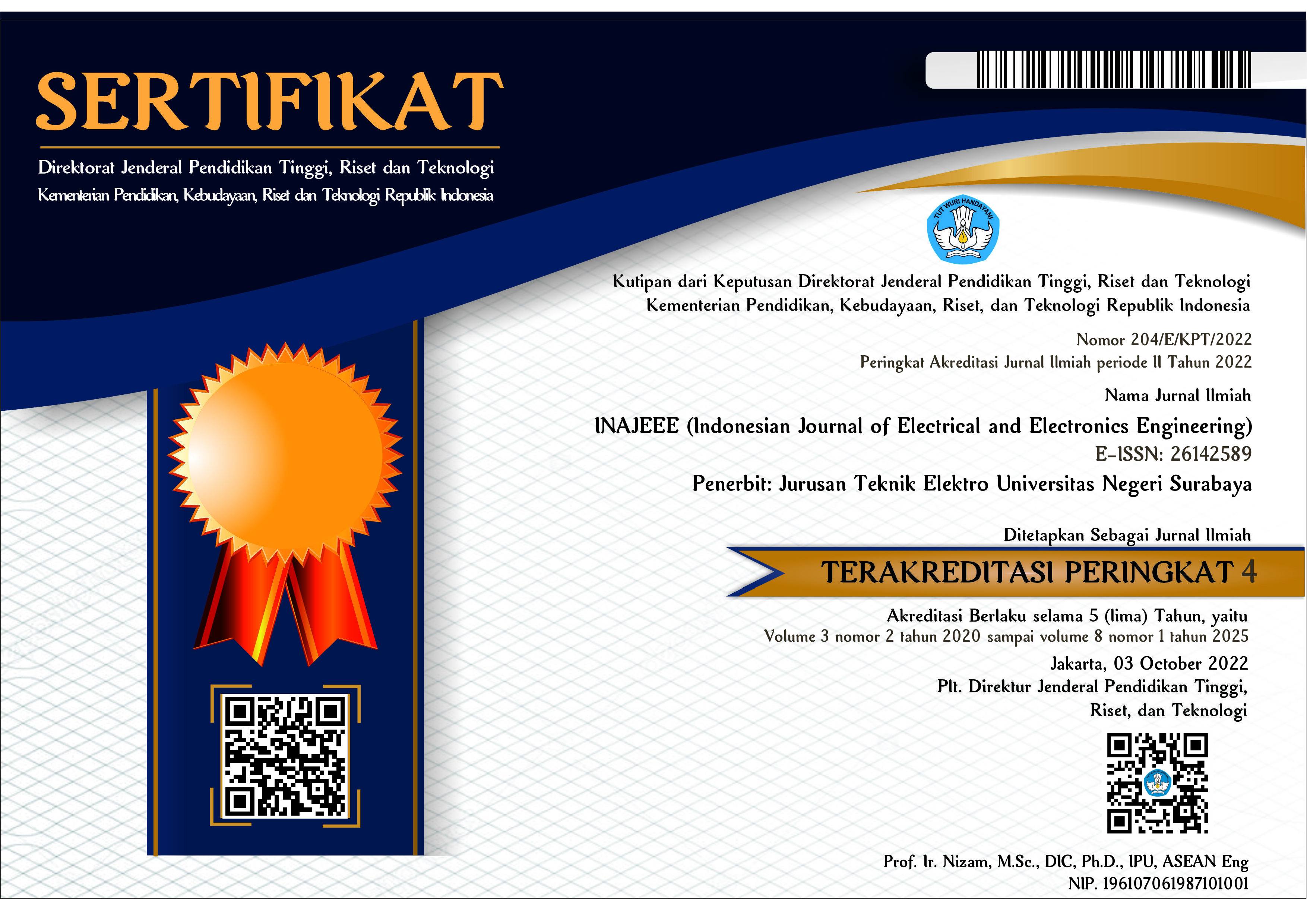Design and Implementation of an Android-Based Indoor Signal Strength Positioning System Using Multivariate Gaussian Mixture Model with Wi-Fi RSSI Fingerprinting
DOI:
https://doi.org/10.26740/inajeee.v8n2.p84-96Abstract
Indoor positioning systems (IPS) are crucial where GPS accuracy is limited, but Wi-Fi RSSI-based methods face challenges from signal fluctuations and computational complexity. This research designed and implemented an Android application for indoor signal-strength positioning using a Multivariate Gaussian Mixture Model (MGMM) algorithm based on Wi-Fi RSSI fingerprinting. The system utilized three 2.4 GHz access points to collect Received Signal Strength Indicator (RSSI) data, building a fingerprint database. MGMM was integrated with Maximum Likelihood Estimation (MLE) for parameter estimation and Bayes' Theorem for probabilistic position determination. Testing was conducted in furnished and unfurnished rooms (30 trials per condition). Results showed 90% accuracy (within a 1-meter tolerance radius), a Mean Absolute Error (MAE) of 0.433 meters, and a Root Mean Square Error (RMSE) of 0.796 meters in furnished environments. In unfurnished rooms, the system achieved 100% accuracy (MAE and RMSE = 0 meters). The average system latency was 62 ms, confirming real-time responsiveness. This study demonstrates MGMM’s effectiveness in modeling RSSI distributions and enhancing IPS accuracy.
Keywords: Indoor Positioning System, Wi-Fi RSSI-Fingerprint, Multivariate Gaussian Mixture Model, Android Application, Accuracy.
Downloads
Published
Issue
Section
License
Copyright (c) 2025 INAJEEE (Indonesian Journal of Electrical and Electronics Engineering)

This work is licensed under a Creative Commons Attribution-NoDerivatives 4.0 International License.
 Abstract views: 134
,
Abstract views: 134
, PDF Downloads: 123
PDF Downloads: 123



